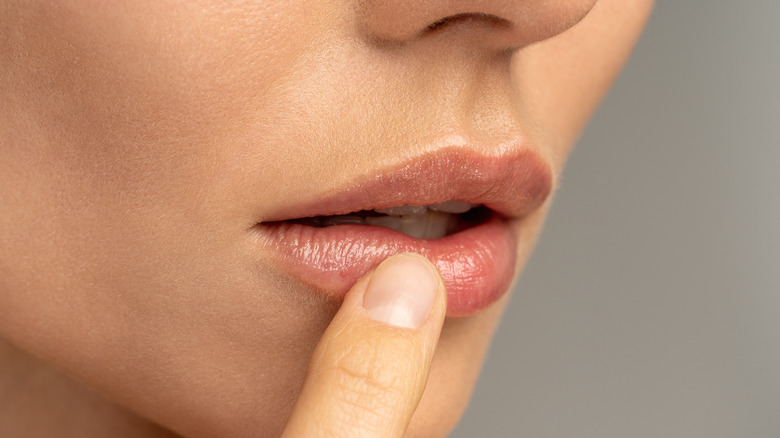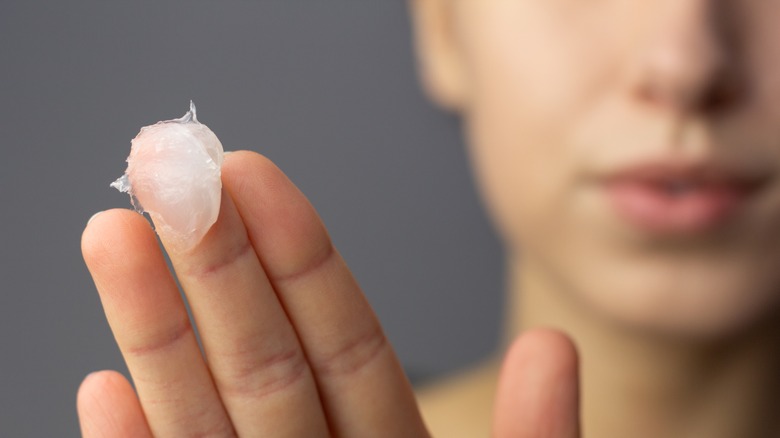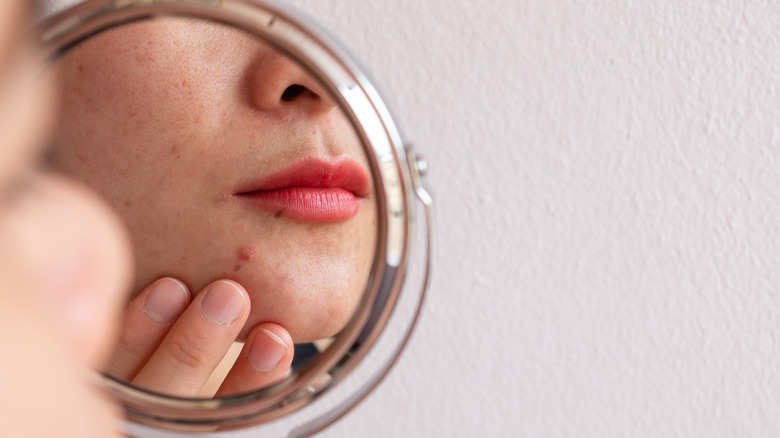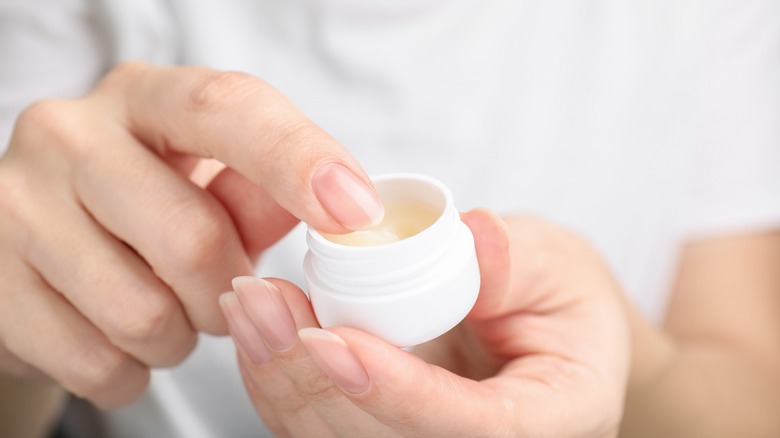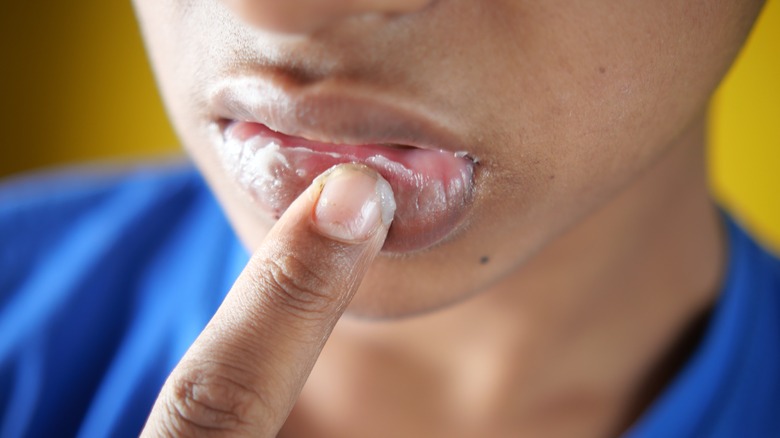4 Possible Downsides Of Using Vaseline For Chapped Lips
Chapped lips can range from being a minor nuisance to being incredibly painful. "The lips don't contain oil glands, unlike other parts of the body, and so this predisposes it to dryness and chapping," says board-certified dermatologist Dr. Shari Marchbein (via NBC News).
Lips can become chapped for various reasons and frequently become problematic when the weather is cold and dry. Harsh winter temperatures and wind combined with a lack of moisture in the air outside and the dry heat inside homes and offices can create a perfect storm resulting in dry, cracked lips. Yet, in the summer, lips can also dry out from too much sun.
No matter the weather, lips can also get chapped when you lick them too often. The saliva can make the skin drier. You may not even realize how much you are licking your lips until they start to feel sore. Then many people grab some Vaseline thinking it will cure their chapped lips, but there are some downsides.
Vaseline doesn't moisturize the way you think
Before you mindlessly grab some Vaseline, here's why you may want to make it a top layer when it comes to chapped lips.
While Vaseline, or any generic petroleum jelly, will adhere to your lips and protect them from losing any moisture that you already have, it won't help you gain any new moisture that you so desperately need (via Healthline). Vaseline is categorized as occlusive, meaning it forms a strong barrier to not letting moisture out but it won't do much to create new moisture from within.
For that, you need a humectant that actually draws in moisture from the environment to soften and heal the skin. Popular humectants include shea butter, honey, and aloe. To get the most out of Vaseline when your lips are chapped, slather on a moisture-inducing agent and then top it off with a thin layer of Vaseline to keep moisture in.
Acne sufferers may have an adverse reaction
You might think that applying a thick layer of Vaseline anywhere on the face may not be the best idea in terms of breakouts. After all, it seems like common sense that placing petroleum jelly on the skin can have the potential to inundate pores and cause them to trap dirt and bacteria inside.
Yet, the Vaseline company's website begs to differ and says that their product won't lead to clogged pores. "While many components of makeup cannot be absorbed into the skin and instead tend to clump together to clog pores, petroleum jelly absorbs deeply into the skin and doesn't aggravate the pores," the website reads. "Pure healing jelly does not clog your pores – it leaves them clear." It also suggests that leaving makeup on overnight can certainly cause clogged pores but assert that its product will not.
However, some people may have adverse reactions to Vaseline; and, according to the American Academy of Dermatology Association, if you suffer from acne, they advise avoiding the use of petroleum jelly anywhere on the face. While it may not affect all people, it can negatively impact some.
Bacteria can cause infections
When lips first chap, they may just feel a little rough and dry. However, for many, the chapped areas quickly turn into cracked and peeling skin. Furthermore, it can worsen if you peel the skin or bite it.
On top of that, when you go for a jar of Vaseline, you don't always know how long you've had it or how clean it has been kept, particularly if you share it with a partner or family members. "People tend to have pots that have been open for a long time and dip a finger in, which might not be clean," says wound care advisor Jacqui Fletcher, as per BBC News.
If you introduce bacteria to cracked lips simply by touching them with a finger that has pathogens on it, you could have a bigger problem. Applying a layer of Vaseline to the lips after they have been in contact with bacteria essentially works to trap the bacteria on the lips and then seal them in with Vaseline. It also adds bacteria to the jar of Vaseline, so always wash your hands before touching cracked lips or dipping them into a jar of Vaseline.
Aspiration pneumonia can be a rare side effect
Though it's a rare side effect, aspiration pneumonia has the potential to occur with repeated use of Vaseline on the mouth and nose. It happens when small petroleum jelly particles are inhaled and build up in the lungs.
Rarely, small amounts of the jelly can travel into the windpipe (trachea) and lungs. Over many months, the jelly can build up in the lungs. Dr. Lawrence Gibson writes for Mayo Clinic, "This buildup can lead to potentially serious swelling and irritation (inflammation) in the lungs known as lipoid pneumonia." Lipoid pneumonia is a form of aspiration pneumonia that occurs from inhaling oil-based substances.
While this has a higher potential to happen when Vaseline is applied inside the nostrils, a thick layer of petroleum jelly on the lips at night is also a risk, especially with children who may wipe it into their mouth and/or nose. When using Vaseline on your lips before bed make sure to apply a very thin layer.
